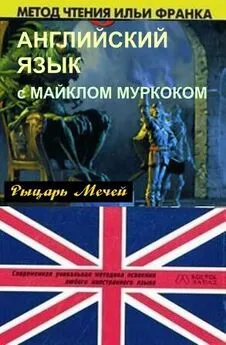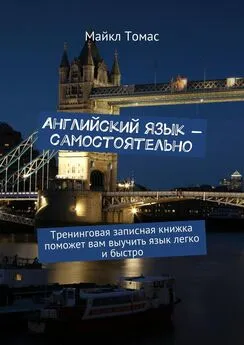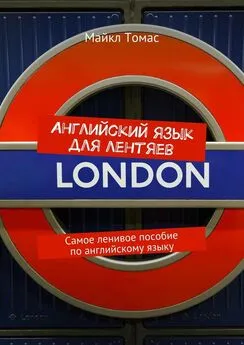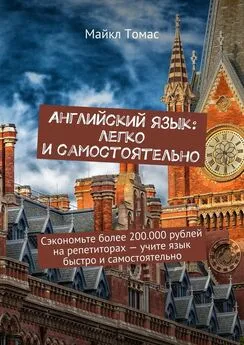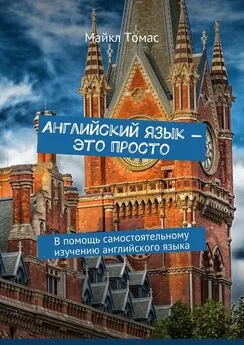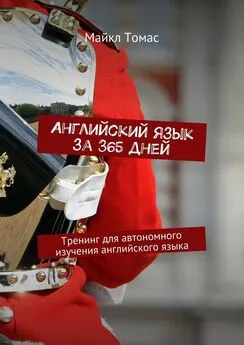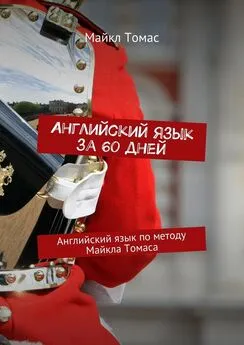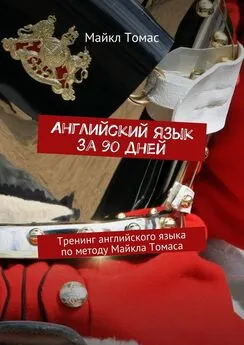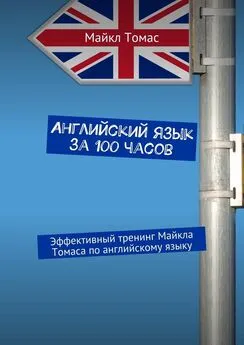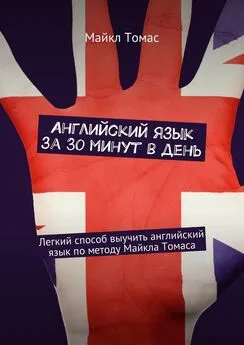Майкл Муркок - Английский язык с М. Муркоком
- Название:Английский язык с М. Муркоком
- Автор:
- Жанр:
- Издательство:неизвестно
- Год:неизвестен
- ISBN:нет данных
- Рейтинг:
- Избранное:Добавить в избранное
-
Отзывы:
-
Ваша оценка:
Майкл Муркок - Английский язык с М. Муркоком краткое содержание
В книге предлагается произведение "Рыцарь Мечей" Майкла Муркока, адаптированные (без упрощения текста оригинала) по методу Ильи Франка. Уникальность метода заключается в том, что запоминание слов и выражений происходит за счет их повторяемости, без заучивания и необходимости использовать словарь. Пособие способствует эффективному освоению языка, может служить дополнением к учебной программе. Предназначено для студентов, для изучающих английский язык самостоятельно, а также для всех интересующихся английской культурой.
Метод чтения Ильи Франка
Английский язык с М. Муркоком - читать онлайн бесплатно полную версию (весь текст целиком)
Интервал:
Закладка:
He took a gauntlet given him by Shool and drew it over his hand. He remembered what Shool had told him, before he left, about the powers of the hand. He still only half believed Shool's words and he was unwilling to test their veracity. For more than an hour he trudged along the shore until he moved round a headland and saw a bay whose sides sloped gently upward and would be easily scaled. The tide was beginning to come in and would soon cover the beach. He began to run. He reached the slopes and paused, panting. He had found safety in time. The sea had already covered the largest part of the beach. He climbed to the top of the slope and he saw the city.
It was a city of domes and minarets that blazed white in the light of the sun (это был город из куполов и минаретов, которые белели: «сверкали белым» в свете солнца), but as he inspected it more closely Corum saw that the towers and domes were not white, but comprised of a multicoloured mosaic (но когда Корум рассмотрел его тщательнее, он увидел, что башни и купола не белые, а облицованы разноцветной мозаикой; to comprise — включать в себя, содержать ). He had seen nothing like it (/никогда/ он не видел ничего подобного).
He debated whether to avoid the city or approach it (он раздумывал, обойти город или войти в него; to debate — обсуждать, спорить; думать, размышлять; to avoid — избежать, уклониться; to approach — приближаться, подходить ). If the people of the city were friendly, he might be able to get their help to find another boat (если жители города дружелюбны, ему, возможно, удастся с их помощью найти другую лодку). If they were Mabden, then they were probably unfriendly (если они мабдены, тогда они, вероятно, недружелюбны).
Were these the Ragha-da-Kheta people mentioned on his maps (были ли они ли народом рага-да-кета, упоминаемым на его картах)? He felt for his pouch, but the maps had gone with the boat, as had his lodestone (он поискал свою сумку, но карты исчезли вместе с лодкой, как и его магнит; to feel for — нащупывать, искать ощупью; pouch — сумка, мешок ). Despair returned (отчаяние вернулось).
He set off towards the city (он направился к городу).
mosaic [mə (u) ˈzeɪɪk] debated [dɪˈbeɪtɪd] pouch [pauʧ]
It was a city of domes and minarets that blazed white in the light of the sun, but as he inspected it more closely Corum saw that the towers and domes were not white, but comprised of a multicoloured mosaic. He had seen nothing like it.
He debated whether to avoid the city or approach it. If the people of the city were friendly, he might be able to get their help to find another boat. If they were Mabden, then they were probably unfriendly.
Were these the Ragha-da-Kheta people mentioned on his maps? He felt for his pouch, but the maps had gone with the boat, as had his lodestone. Despair returned.
He set off towards the city.
Corum had travelled less than a mile before the bizarre cavalry came racing towards him (Корум прошел менее мили, когда причудливая конница понеслась к нему) — warriors mounted on long-necked speckled beasts with curling horns and wattles like those of a lizard (воины, сидевшие верхом на длинношеих пятнистых животных с закрученными рогами и сережками, как у ящерицы; wattle — сережка /у птиц/, бородка /у индюка, петуха/ ). The spindly legs moved swiftly, however (длинные тонкие ноги двигались, впрочем, быстро), and soon Corum could see that the warriors were also very tall and extremely thin (и вскоре Корум мог видеть, что воины тоже очень долговязые и чрезвычайно худые), but with small, rounded heads and round eyes (но с маленькими округлыми головами и круглыми глазами). These were not Mabden, but they were like no race he had ever heard of (они не были мабденами, но они /также/ не были похожи ни на один народ, о котором Корум когда-либо слышал).
He stopped and waited (он остановился и /стал/ ждать). There was nothing else he could do until he discovered if they were his enemies or not (он ничего не мог больше сделать, пока не узнает, враги они ему или нет).
Swiftly, they surrounded him, peering down at him through their huge, staring eyes (они быстро окружили его, пристально глядя на него своими огромными, широко раскрытыми глазами). Their noses and their mouths were also round and their expressions were ones of permanent surprise (их носы и рты тоже были круглыми, а выражение лиц были /выражениями/ постоянного изумления).
bizarre [bɪˈzɑ:] lizard [ˈlɪzəd] extremely [ɪkˈstri:mlɪ] permanent [ˈpə: mənənt]
Corum had travelled less than a mile before the bizarre cavalry came racing towards him — warriors mounted on long-necked speckled beasts with curling horns and wattles like those of a lizard. The spindly legs moved swiftly, however, and soon Corum could see that the warriors were also very tall and extremely thin, but with small, rounded heads and round eyes. These were not Mabden, but they were like no race he had ever heard of.
He stopped and waited. There was nothing else he could do until he discovered if they were his enemies or not.
Swiftly, they surrounded him, peering down at him through their huge, staring eyes. Their noses and their mouths were also round and their expressions were ones of permanent surprise.
`Olanja ko (оланжа ко)? said one wearing an elaborate cloak and hood of bright feathers (сказал один, носивший изысканный плащ и капюшон из ярких перьев) and holding a club fashioned like the claw of a giant bird (державший дубинку, по форме напоминавшую коготь огромной птицы). `Olanja ko, drajer? Using the Low Speech of the Vadhagh and the Nhadragh, which was the common tongue of the Mabden, Corum replied (используя низкий = упрощенный язык вадагов и надрагов, который был обычным языком мабденов, Корум ответил):
`I do not understand this language (я не понимаю этого языка).
The creature in the feather cloak cocked his head to one side and closed his mouth (существо в /украшенном/ перьями плаще склонило голову на бок и закрыло рот). The other warriors, all dressed and armed similarly (остальные воины, все одетые и вооруженные подобным образом), though not as elaborately, muttered among themselves (хотя и не так изысканно, тихо переговаривались; to mutter — бормотать; тихо, невнятно говорить ).
Corum pointed roughly southwards (Корум указал приблизительно на юг).
`I come from across the sea (я прибыл из-за моря). Now he used Middle Speech which Vadhagh and Nhadragh had spoken, but not Mabden (теперь он использовал средний = обычный язык, на котором говорили вадаги и надраги, но не мабдены; to speak ).
feather [ˈfeðə] tongue [tʌŋ] roughly [ˈrʌflɪ]
`Olanja ko? said one wearing an elaborate cloak and hood of bright feathers and holding a club fashioned like the claw of a giant bird. `Olanja ko, drajer? Using the Low Speech of the Vadhagh and the Nhadragh, which was the common tongue of the Mabden, Corum replied:
`I do not understand this language.
The creature in the feather cloak cocked his head to one side and closed his mouth. The other warriors, all dressed and armed similarly, though not as elaborately, muttered among themselves.
Corum pointed roughly southwards.
`I come from across the sea. Now he used Middle Speech which Vadhagh and Nhadragh had spoken, but not Mabden.
The rider leaned forward as if this sound was more familiar to him (всадник подался вперед, словно этот звук = эти слова были более знакомы ему), but then he shook his head, understanding none of the words (но потом он /отрицательно/ покачал головой, не понимая ни слова).
`Olanja ko?
Corum also shook his head. The warrior looked puzzled and made a delicate scratching gesture at his cheek (воин посмотрел озадаченно и сделал осторожный царапающий жест по своей щеке). Corum could not interpret the gesture (Корум не смог понять этот жест; to interpret — объяснять, толковать; понимать ).
The leader pointed at one of his followers (главный указал на одного из своей свиты; leader — руководитель, глава; вождь; командир; follower — последователь, сторонник ).
`Mor naffa!
The man dismounted and waved one of his spindly arms at Corum (тот спешился и одной из своих длинных рук помахал Коруму), gesturing that he climb on the long-necked beast (показывая, чтобы он взобрался на длинношеее /животное/).
familiar [fəˈmɪlɪə] delicate [ˈdelɪkɪt] interpret [ɪnˈtə: prɪt]
The rider leaned forward as if this sound was more familiar to him, but then he shook his head, understanding none of the words.
`Olanja ko?
Corum also shook his head. The warrior looked puzzled and made a delicate scratching gesture at his cheek. Corum could not interpret the gesture.
The leader pointed at one of his followers.
`Mor naffa!
The man dismounted and waved one of his spindly arms at Corum, gesturing that he climb on the long-necked beast.
With some difficulty, Corum managed to swing himself into the narrow saddle and sit there, feeling extreme discomfort (с трудом Корум сумел вскочить в узкое седло и сесть, ощущая крайнее неудобство; to swing oneself into a saddle — вскочить в седло ).
`Hoj! The leader waved to his men and turned his mount back towards the city (главный махнул рукой своим людям и повернул свое животное обратно к городу; mount — лошадь, мул и т. д. под седлом ).
`Hoj — ala!
The beasts jogged off, leaving the remaining warrior to make his way back to the city on foot (животные побежали трусцой, заставляя оставшегося воина идти обратно в город пешком; to jog — идти медленной рысью /о лошади/; двигаться подпрыгивая; to leave — покидать, оставлять; to make one`s way — продвигаться, пробираться ).
Читать дальшеИнтервал:
Закладка:
